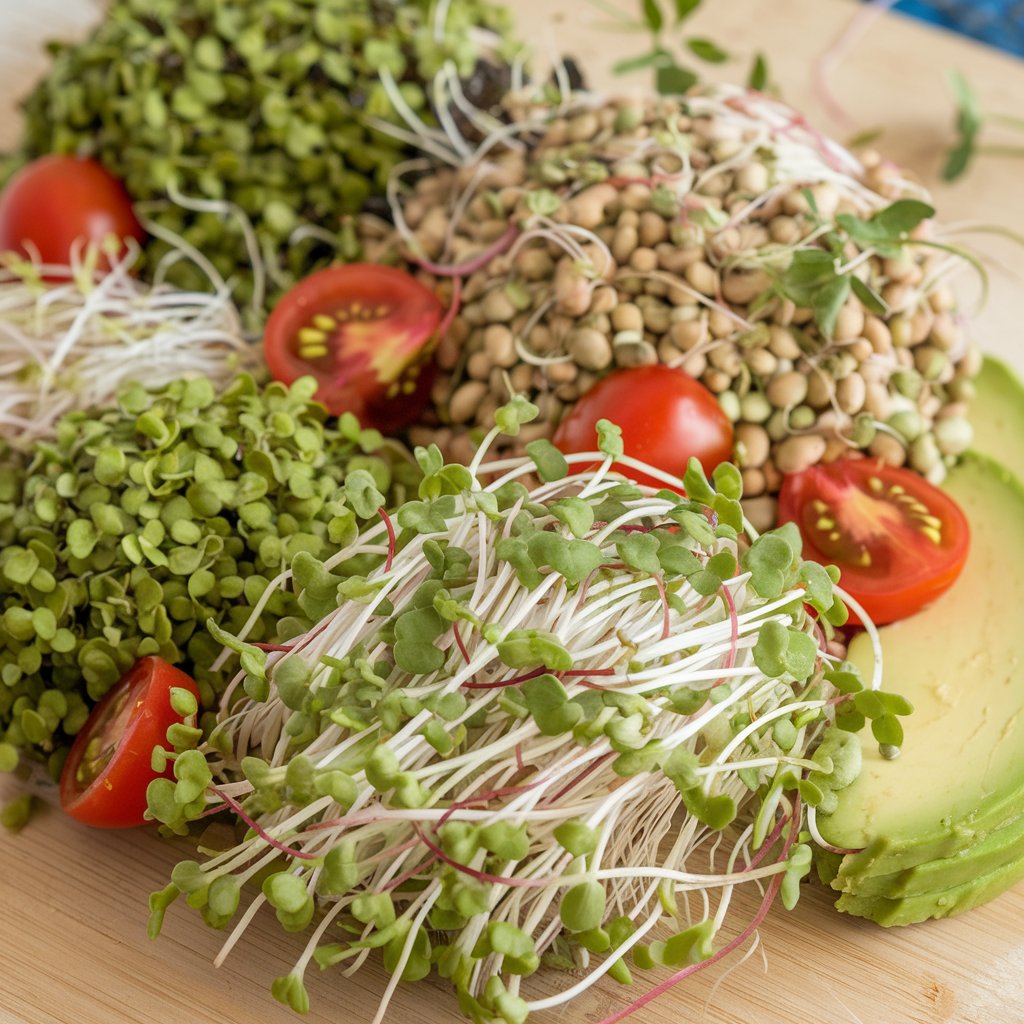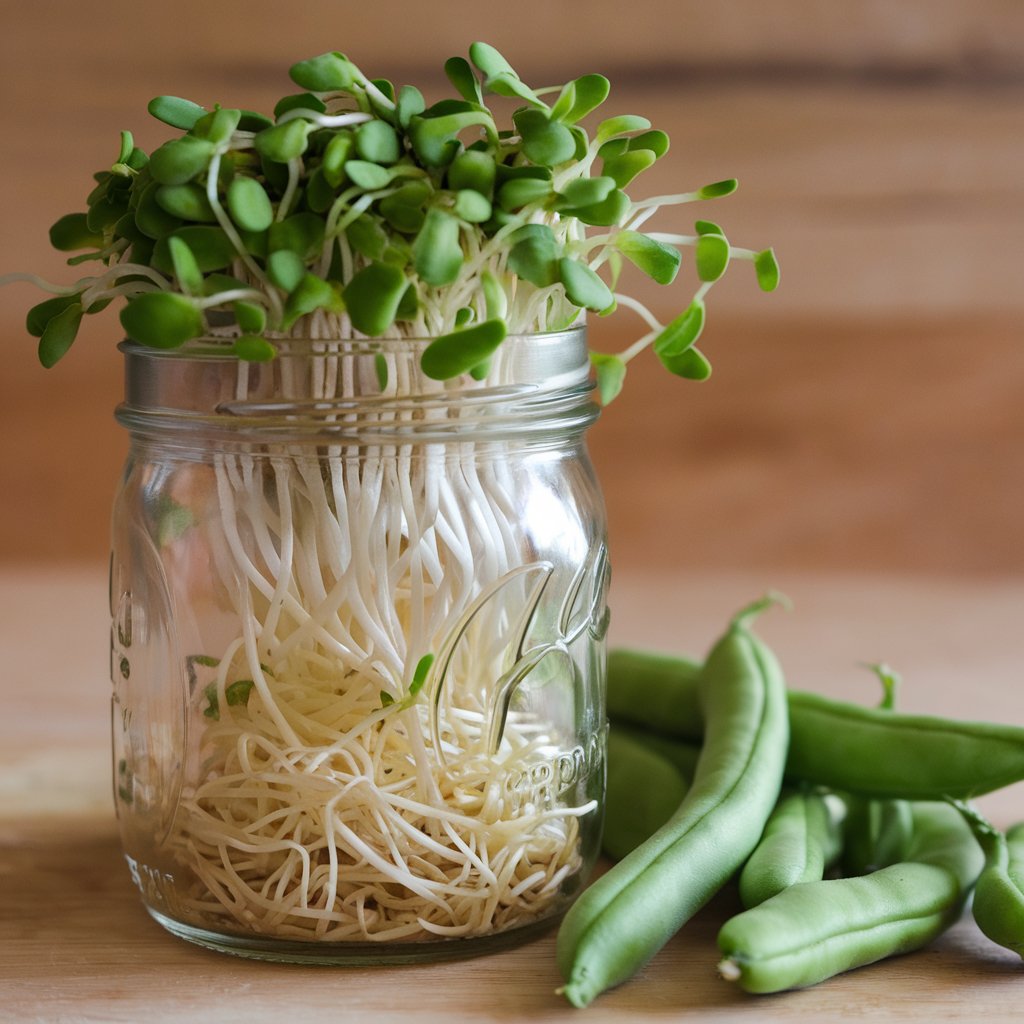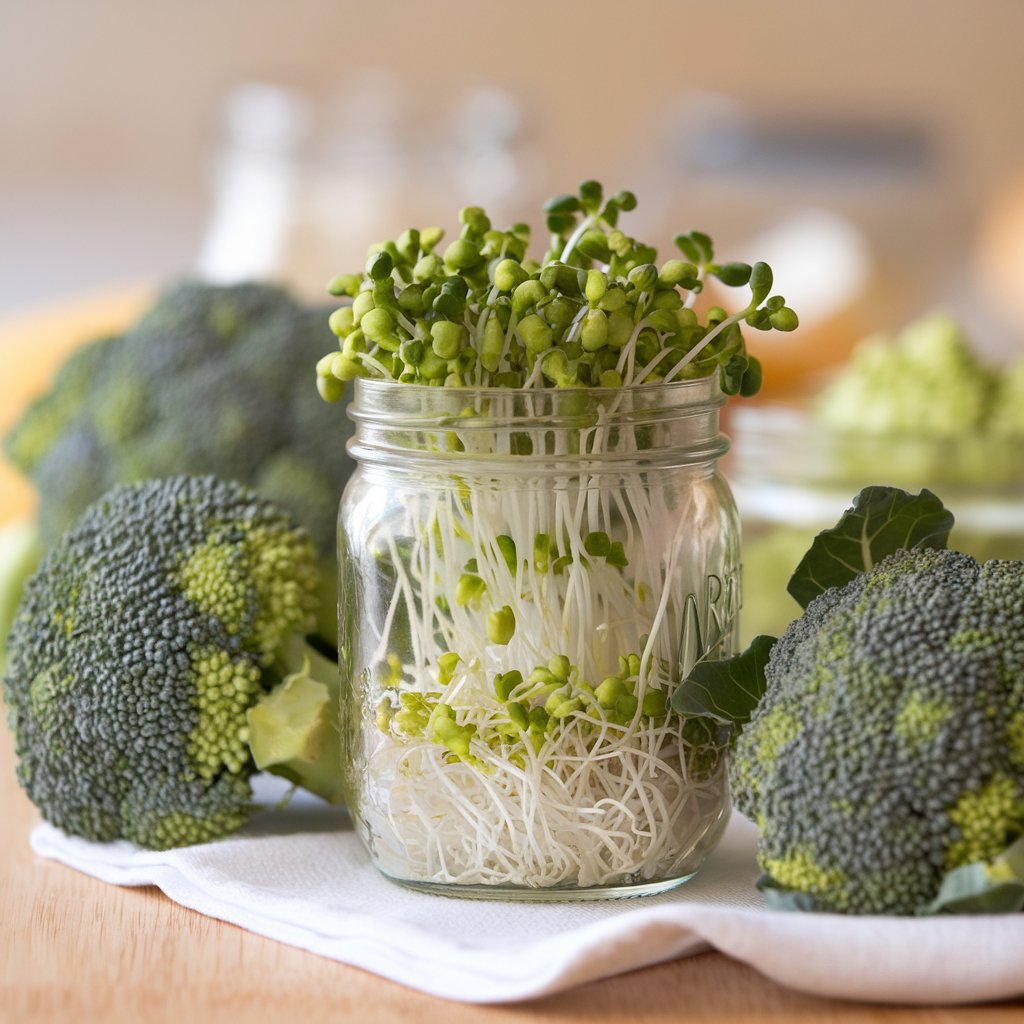Sprouting has long been a favorite technique for making seeds, beans, and grains even healthier, but have you ever wondered why? What’s going on during the sprouting process that makes these tiny plants so nutritionally powerful? As we dive into the science of sprouting, you’ll discover exactly why sprouted foods are known for their enhanced nutritional benefits—and how this simple, natural process transforms seeds into superfoods.
If you’re looking to boost the nutrient density of your diet, sprouting is a fantastic addition to your healthy eating routine. In this article, we’ll explore the science behind sprouting, its effect on nutritional value, and why sprouted foods have earned their reputation as nutrient powerhouses.
What Is Sprouting?
Sprouting is the process of germinating seeds, beans, or grains by soaking them in water and allowing them to grow for a few days. During this time, the seed begins to transition into a young plant, developing a small shoot and sometimes even tiny roots. The sprouting stage typically lasts from 2 to 7 days, depending on the seed type and growing conditions.
This period of growth triggers significant biochemical changes that make the seeds more digestible and nutritionally potent. During sprouting, complex compounds within the seed break down, releasing a variety of vitamins, minerals, enzymes, and other health-promoting substances. As the seed transforms, so does its nutritional profile, leading to the enhanced benefits that make sprouted foods so appealing.
The Nutritional Benefits of Sprouting: What Changes Happen?
So, what exactly changes in a seed’s nutritional content during sprouting? Let’s break down some of the primary ways sprouting boosts the nutritional value of seeds, beans, and grains.
1. Increased Vitamin Content
One of the biggest benefits of sprouting is its ability to increase the concentration of essential vitamins. During sprouting, vitamins like vitamin C, vitamin E, and several B vitamins are produced in greater quantities.
- Vitamin C: Seeds and beans generally don’t contain vitamin C in their dry form. However, during sprouting, vitamin C levels rise, making sprouted seeds a good source of this immune-boosting antioxidant.
- Vitamin E: Known for its antioxidant properties, vitamin E content increases in many sprouts, helping protect cells from oxidative damage.
- B Vitamins: Sprouting enhances the levels of several B vitamins, including folate, which is essential for energy production and cell function.
This increase in vitamin levels means that sprouted seeds offer more nutrients than their unsprouted counterparts, making them an ideal choice for anyone looking to add more essential vitamins to their diet.
2. Improved Mineral Absorption
Minerals like iron, zinc, and calcium are crucial for health, but they are often bound to compounds called phytates in raw seeds, beans, and grains. Phytates act as “anti-nutrients,” binding to these minerals and reducing their bioavailability, meaning your body can’t absorb them as effectively.
- Reduction of Phytates: During sprouting, phytates are broken down, which increases the bioavailability of essential minerals. This breakdown makes minerals more accessible to the body, allowing you to absorb more iron, zinc, magnesium, and calcium from sprouted foods than from their unsprouted versions.
- Enzyme Activation: Sprouting activates enzymes that further support mineral absorption, enhancing the overall nutrient profile of the sprouts.
By reducing phytates and other anti-nutrients, sprouting allows for better mineral uptake, making sprouted foods a highly nutritious choice.
3. Enhanced Protein Quality
Sprouting also improves the protein quality of seeds and legumes. Although seeds, beans, and grains contain proteins in their dormant state, the proteins often come with anti-nutritional factors like protease inhibitors that hinder digestion.
- Protein Breakdown: Sprouting transforms complex proteins into simpler amino acids, enhancing digestibility and absorption.. As a result, sprouted foods offer a more accessible source of protein, especially beneficial for those looking to increase plant-based protein in their diet.
- Increased Amino Acids: During the sprouting process, amino acids like lysine and methionine increase, improving the amino acid profile of sprouted foods. Lysine, for example, is essential for muscle growth and immune function, while methionine supports metabolism and detoxification.
This boost in protein quality makes sprouted seeds and beans a valuable source of nutrition, especially for vegetarians and vegans who rely on plant-based proteins.
4. Boosted Antioxidant Levels
Antioxidants combat oxidative stress, shielding cells from damage and promoting overall health. Sprouted foods are known to have higher antioxidant levels than their unsprouted counterparts.
- Increased Antioxidant Activity: Sprouting stimulates the production of antioxidants such as flavonoids, phenolic compounds, and other bioactive phytochemicals. These compounds work to neutralize harmful free radicals in the body, which can contribute to aging and disease.
- Sulforaphane in Cruciferous Sprouts: In cruciferous sprouts like broccoli sprouts, sprouting increases sulforaphane, a powerful antioxidant with anti-cancer properties. Studies suggest that sulforaphane may reduce the risk of cancer by supporting detoxification and anti-inflammatory pathways in the body.
Including sprouted foods in your diet means you’re getting more antioxidants that can help protect against chronic diseases and support cellular health.
5. Enhanced Digestibility and Enzyme Activity
Sprouted foods are easier to digest, thanks to the enzymatic processes that occur during germination.
- Activation of Digestive Enzymes: During sprouting, seeds produce enzymes like amylase, protease, and lipase, which help break down carbohydrates, proteins, and fats. This makes the nutrients in sprouted seeds more accessible and easier to absorb.
- Reduction of Anti-Nutrients: Compounds like lectins and protease inhibitors, which interfere with digestion and nutrient absorption, are reduced during sprouting. This reduction makes sprouted foods gentler on the digestive system, making them a great choice for individuals with digestive sensitivities.
The improved digestibility of sprouted foods not only makes them a better source of nutrition but also helps minimize digestive discomfort for those who may struggle with beans, seeds, and grains.

How to Sprout at Home
If you’re ready to experience the benefits of sprouting for yourself, here’s a quick guide to get you started:
- Choose Your Seeds: Select organic seeds, beans, or grains. Popular choices include broccoli, alfalfa, mung beans, lentils, and radishes.
- Soak: Place 1-2 tablespoons of seeds in a glass jar and cover with filtered water. Let them soak for 8-12 hours.
- Drain and Rinse: After soaking, drain the water and rinse the seeds. Cover the jar with a breathable cloth or mesh, secured with a rubber band.
- Inverted Position: Store the jar upside down at an angle to allow excess water to drain while keeping airflow.
- Rinse Daily: Rinse and drain the seeds 2-3 times daily. In 3-7 days, you’ll see sprouts emerge and be ready to harvest.
- Storage: Rinse one last time, then store the sprouts in the refrigerator for up to a week.
Are Sprouted Foods Safe?
While sprouted foods are generally safe, the warm and humid environment required for sprouting can sometimes encourage bacterial growth. To reduce this risk, always:
- Use clean, organic seeds.
- Rinse thoroughly and maintain a cool sprouting area.
- Refrigerate sprouts after they’re fully grown.
When done properly, sprouting is a safe and healthy way to boost your nutrition.
Final Thoughts: Why Sprouted Foods Deserve a Place in Your Diet
Sprouting is a simple, natural process that can transform the nutritional value of seeds, beans, and grains. By increasing vitamin and mineral content, enhancing protein quality, boosting antioxidant levels, and improving digestibility, sprouted foods offer a range of benefits that make them an exceptional addition to any diet. Whether you’re a seasoned sprouter or new to the world of microgreens, growing and eating sprouted foods is a rewarding way to elevate your meals and your health.
So, the next time you’re looking to maximize the nutritional impact of your meals, consider adding fresh sprouts. From salads to smoothies, sprouted foods bring both flavor and health benefits that make them a worthy addition to your plate.




